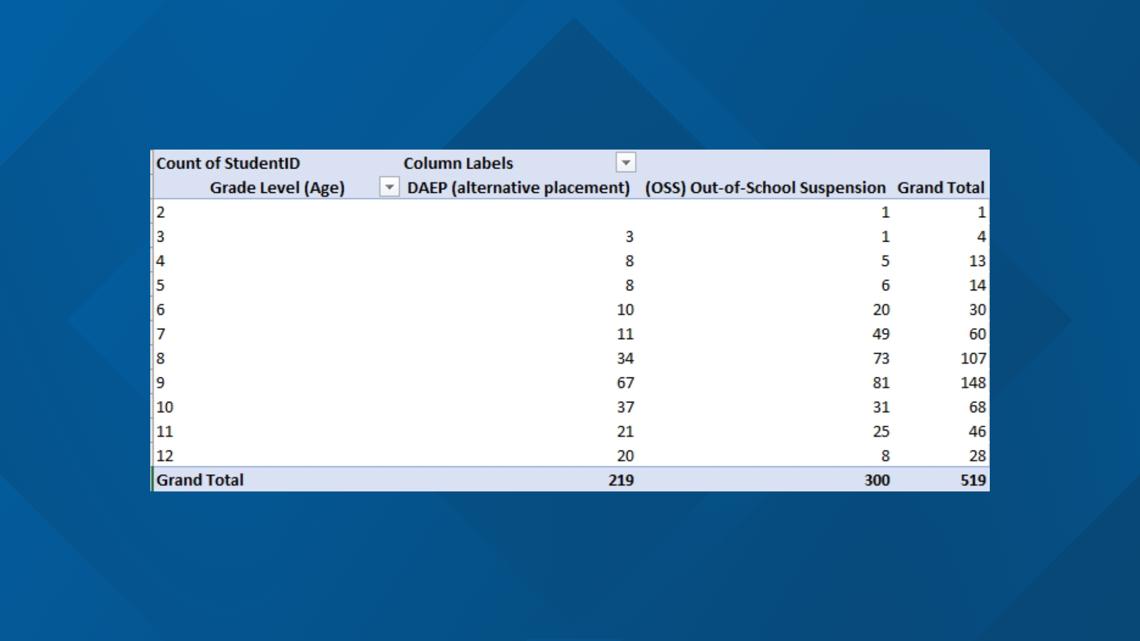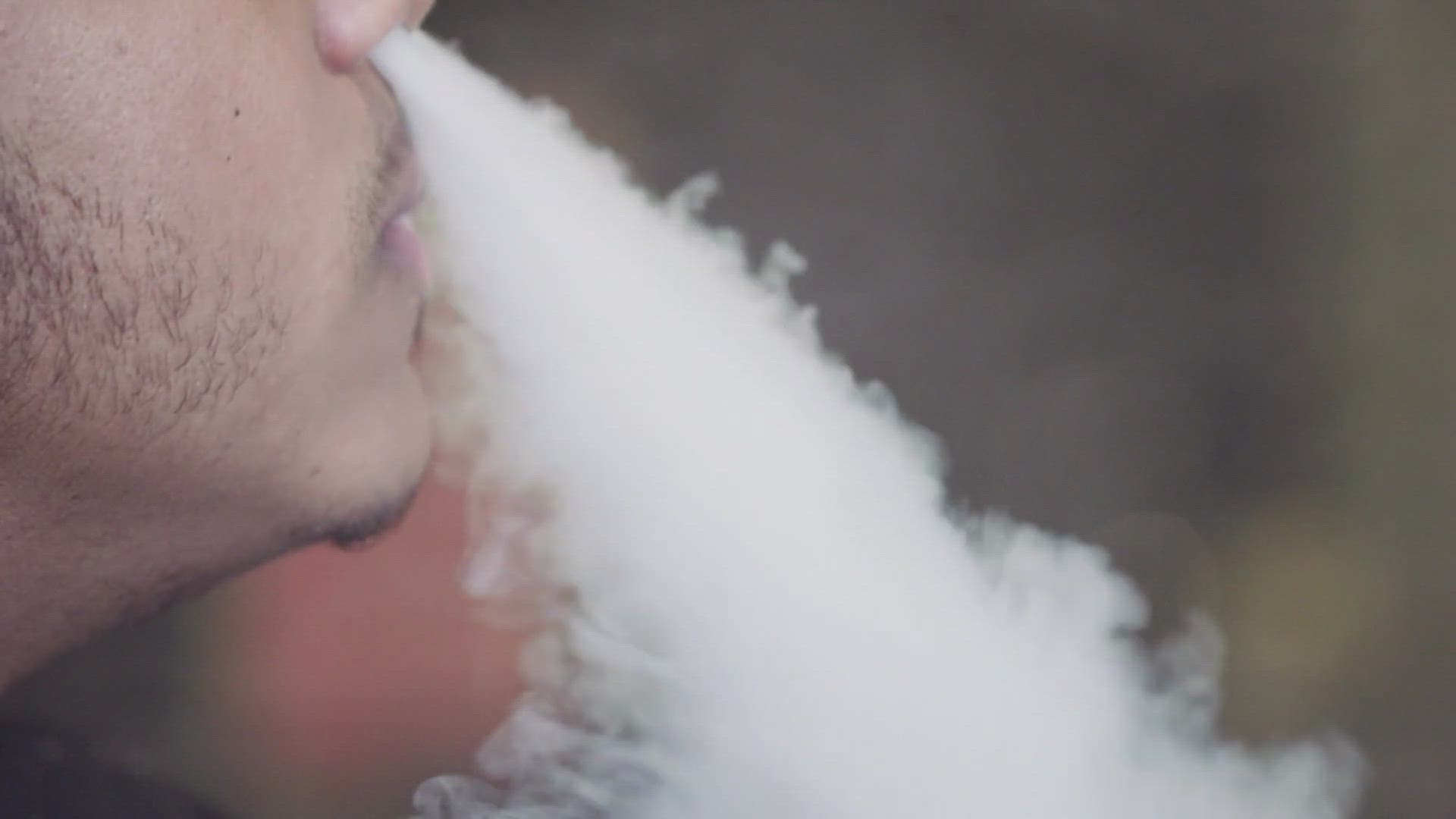FORT WORTH, Texas — A single puff of a vape in class sets in motion a mandatory punishment under a new state law that has seen hundreds of students in North Texas districts sent to alternative schools designated for students in serious trouble.
The law, which went into effect Sept. 1, requires districts to send students to discipline alternative education programs (DAEP) if they are caught having, using or selling an e-cigarette on campus or within 300 feet of a school.
In the first four months of the law, Dallas ISD and Fort Worth ISD respectively reported 238 and 219 students sent to the discipline schools for vaping incidents -- including more than a dozen elementary schoolers. The law does not specify for how long the students must stay in the DAEP program.
The measure's sponsor, outgoing Rep. Ed Thompson (R-Pearland), said he intended to give districts flexibility to discipline students caught with marijuana, but a last-minute amendment in the State Senate altered his original proposal.
Thompson now believes the law needs to be altered in the next legislative session to remove the zero-tolerance style language for vaping students.
"That was not the intent," he told WFAA.
The law has also been panned by anti-vaping advocates -- including the American Lung Association -- whose Texas advocacy director said the measure does not appropriately address the underlying causes of youth vaping and addiction.
"You’re taking these kids who may have just been experimenting or may have been trying a vape for the first time and sticking them in with students that expose them to more dangerous behaviors and more dangerous habits," Charlie Gagen said.
Yet hundreds of students have been sent to the discipline programs under the law.
At Dallas ISD, a policy change to comply with the measure requires students caught with vapes to attend a five-day substance abuse intervention program. Fort Worth ISD said a first offense will lead to a day in a DAEP on-campus program.
DAEPs "serve as alternative education settings for students temporarily removed for disciplinary purposes from their regular instructional settings," the Texas Education Agency said.
Other districts have worked to find exceptions to allow them to create their own policies and not comply with the law. Denton ISD, which said it sent 9 students to DAEP programs for vaping in the Fall 2023 semester, announced in late September its trustees voted to amend its District of Innovation plan to allow it to create its own e-cigarette policy.
“We will continue to bolster the types of services that we provide to students with e-cigarettes, regardless of whether they are a controlled substance or not,” Deron Robinson, Denton ISD General Counsel, said in a release. “We know this is an issue and an epidemic for our community’s young people that we have to address, and we are addressing it at every campus."
Houston ISD said in its District of Innovation plan that more than 100 districts in Texas had requested exemptions as of October.
For the districts that have not, the law remains in effect.
"It’s easy to punish the students for the bad behavior, but that’s not going to address the underlying issue," said Gagen of the American Lung Association. "We would really like to see more emphasis focused on the tobacco retailers and tobacco manufacturers."
But he said youth vaping remains a serious issue for schools and that studies suggest students are vaping at rates they previously used to smoke cigarettes.
"These things are so dangerous and so addictive, I just think it’s something that we really need to get a handle on," said Thompson.
If the DAEP program is full, Thompson pointed out the law does permit a campus behavior coordinator to decide appropriate discipline, including suspension.
Public records requested by WFAA show that Dallas ISD sent 19 elementary school students, 99 middle schoolers and 120 high schoolers to DAEP programs in the fall semester of 2023.
Records from Fort Worth ISD show a mix of DAEP placement and out-of-school suspension for vaping incidents in the fall semester:



